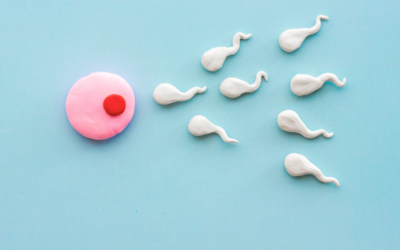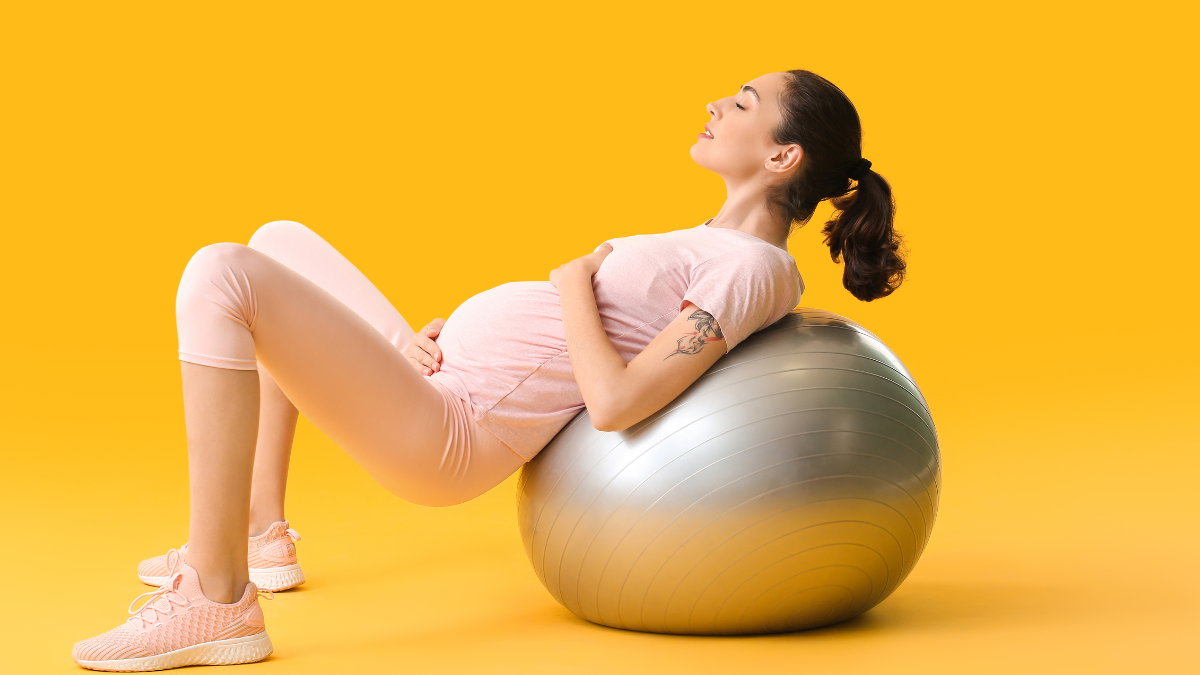Reaching 19 weeks pregnant is an exciting milestone in your pregnancy journey. You are now well into your second trimester, and your baby is growing rapidly. At this stage, essential organs and systems are developing, and you may start to notice your baby’s movements for the first time. Your body is also adjusting, with changes like a growing belly, fuller breasts, and increased appetite, all working to support your baby’s growth.
This stage is not just about physical changes—your overall well-being is equally important. Proper nutrition, safe exercise, and regular prenatal checkups play a crucial role in ensuring both your health and your baby’s development. In this guide, we’ll take a detailed look at what to expect when you are 19 weeks pregnant, including baby development, common symptoms, physical changes, and essential care tips to help you navigate this exciting phase with confidence.
Table of Contents
Baby Development at 19 Weeks Pregnant
By 19 weeks pregnant, your baby has reached significant milestones in growth and development:
- Size and Weight: Your baby is about the size of a mango, measuring roughly 6 inches long and weighing around 8–9 ounces.
- Movements: The baby is becoming more active, and you may start to feel small flutters or nudges, known as “quickening.”
- Sensory Development: The ears are fully formed, and your baby can respond to sounds, including your voice and your partner’s.
- Physical Features: Hair, eyebrows, and eyelashes are forming, and the skin is developing a protective coating called vernix caseosa.
- Digestive System: The intestines are working, and meconium—the baby’s first stool—is forming.
- Gender Development: External sexual organs are fully developed and may be visible via ultrasound.
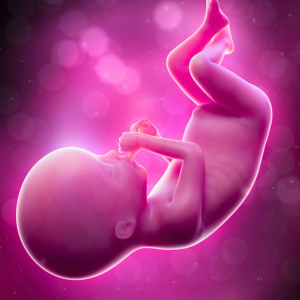
Physical Changes in the Mother at 19 Weeks Pregnant
Your body continues to adjust to pregnancy, and these changes may include:
- Growing Belly: Your abdomen is expanding, and you may notice your waistline changing.
- Breast Changes: Breasts may feel fuller and heavier; veins may be more noticeable.
- Skin Changes: Darkening of nipples, linea nigra (a dark vertical line on the belly), and mild stretch marks may appear.
- Increased Appetite: Your body requires more calories to support your growing baby.
- Back and Pelvic Discomfort: The additional weight may cause mild back pain or pressure in the pelvis.
Common Symptoms at 19 Weeks Pregnant
At this stage, you may experience a range of symptoms. Most are normal, but you should consult your doctor if they are severe or sudden. Common symptoms include:
- Mild abdominal cramping or stretching sensations
- Fluctuating energy levels
- Headaches or dizziness
- Leg cramps, especially at night
- Heartburn and indigestion
- Increased vaginal discharge
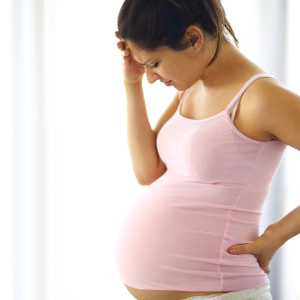
Feeling Baby Movements
Many women begin to notice fetal movements around 19 weeks pregnant. These movements can feel like:
- Gentle flutters or bubbles
- Rolling or shifting motions
- Light taps or nudges
First-time mothers may feel movements slightly later than those who have had previous pregnancies.
Nutrition Tips at 19 Weeks Pregnant
Nutrition is crucial for both your health and your baby’s development. Key dietary recommendations include:
- Protein: Essential for tissue growth; includes eggs, lean meats, fish, beans, and lentils.
- Calcium and Vitamin D: Support bone development; sources include milk, yogurt, cheese, and fortified foods.
- Iron: Prevents anemia and supports blood supply; found in lean meat, spinach, and legumes.
- Fruits and Vegetables: Provide vitamins, minerals, and fiber for digestion.
- Hydration: Drink sufficient water to maintain amniotic fluid levels and prevent dehydration.
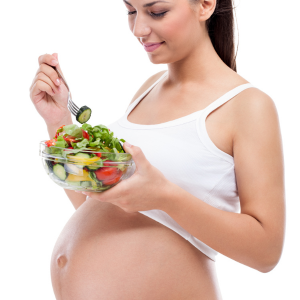
Activities and Precautions
At 19 weeks pregnant, you should focus on safe practices for both yourself and your baby:
- Avoid smoking, alcohol, and recreational drugs.
- Limit caffeine intake.
- Stay away from raw or undercooked foods.
- Choose low-impact exercises like walking, swimming, or prenatal yoga.
- Rest adequately and manage stress.
What Pains Are Normal at 19 Weeks Pregnant?
At 19 weeks pregnant, it’s common to experience certain aches and discomforts as your body adjusts to your growing baby. Here are the most typical pains and why they happen:
- Lower Back Pain: As your belly grows, your center of gravity shifts, putting extra pressure on your lower back muscles. Mild to moderate backaches are common.
- Abdominal or Round Ligament Pain: Stretching ligaments that support the uterus can cause sharp or dull twinges, especially when standing, turning, or stretching.
- Pelvic Pain or Pressure: The uterus is expanding, which may create a feeling of heaviness or mild pressure in the pelvic area.
- Leg Cramps: Often occurring at night, cramps in the calves or thighs are common due to changes in circulation and increased weight.
- Hip or Joint Discomfort: Hormones like relaxin loosen ligaments to prepare for childbirth, sometimes causing hip or joint aches.
- Breast Tenderness: Breasts may feel fuller, heavier, or sore as they continue to develop.
When to Seek Medical Advice
While mild discomfort is normal, contact your doctor immediately if you experience:
- Severe or persistent abdominal pain
- Vaginal bleeding
- Sharp, stabbing pains that don’t go away
- Severe back or pelvic pain that affects walking or daily activity
Most aches at 19 weeks pregnant are part of your body adapting to pregnancy, but regular prenatal checkups can ensure everything is progressing safely.
What Should You Avoid at 19 Weeks Pregnant?
At 19 weeks pregnant, taking care of yourself and your baby is crucial. While most discomforts are normal, certain activities and substances should be avoided to ensure a healthy pregnancy:
- Alcohol and Smoking: Both can affect your baby’s growth and development and increase the risk of complications.
- Recreational Drugs: Avoid all illicit substances, as they can harm the baby’s nervous system and overall health.
- Excess Caffeine: Limit coffee, tea, and energy drinks, as high caffeine intake may increase the risk of low birth weight.
- Raw or Undercooked Foods: Avoid sushi, undercooked meat, eggs, and unpasteurized dairy to reduce the risk of infections like Listeria or Salmonella.
- High-Impact Exercises or Risky Activities: Avoid contact sports, heavy lifting, or activities with a high risk of falling.
- Hot Tubs and Saunas: Excessive heat can be dangerous for your developing baby.
- Stress and Lack of Sleep: Emotional health is essential; avoid overworking yourself and prioritize rest.
By avoiding these risks, you can help ensure both your well-being and your baby’s healthy development during this important stage of pregnancy.
Can My Baby Feel Me Rub My Belly at 19 Weeks?
At 19 weeks pregnant, your baby’s senses are developing, but they are still limited. While your baby may not fully “feel” touch the way they will after birth, they can respond to gentle pressure or movements on your belly.
- Tactile Development: By this stage, the baby’s skin is sensitive, and their nervous system is developing rapidly. Light touches on your abdomen may cause them to move or shift position.
- Recognizing Stimuli: Babies can sense pressure, vibrations, and even gentle pokes. Rubbing your belly may alert them to your presence, and they may respond with a small kick or wiggle.
- Bonding Opportunity: Gently rubbing or talking to your baby can strengthen early bonding, helping you connect even before birth.
While your baby might not “feel” in the same way an older child does, this interaction is meaningful and encourages sensory development.
Can a 19-Week-Old Fetus Survive Outside the Womb?
At 19 weeks pregnant, a fetus is still very early in development, and unfortunately, it cannot survive outside the womb. This stage is considered the middle of the second trimester, but the lungs, brain, and other vital organs are not yet mature enough for independent life.
- Viability: Medical professionals generally consider viability—the point at which a baby can survive outside the womb with intensive care—to be around 24 weeks. Babies born before this stage have extremely low chances of survival.
- Organ Development: At 19 weeks, the lungs are still developing air sacs, the brain is immature, and the immune system is not ready to fight infections.
- Medical Care Limitations: Even with advanced neonatal intensive care, survival for a 19-week fetus is currently not possible.
While this can be concerning for expecting parents, the focus at 19 weeks is on supporting healthy growth and development inside the womb. Regular prenatal checkups, proper nutrition, and avoiding risk factors are essential to help your baby reach viability and beyond.
What Can a Baby Hear at 19 Weeks Pregnant?
By 19 weeks pregnant, your baby’s ears are developing rapidly, and they are beginning to detect sounds, although in a limited way. While the womb muffles external noises, your baby can start responding to certain sounds and vibrations.
- Internal Sounds: Your baby can hear your heartbeat, breathing, and even your voice from inside the womb. These sounds are comforting and familiar.
- External Sounds: Loud noises from outside—like music, a vacuum cleaner, or talking—can also reach your baby, although faintly. Sudden loud sounds may startle them.
- Bonding Through Sound: Talking, singing, or reading to your baby at this stage can help them become familiar with your voice. Some studies suggest early exposure to voices may aid in recognition after birth.
- Developing the Auditory System: While your baby can perceive sound vibrations, their auditory system will continue to mature over the coming weeks, allowing them to distinguish different tones and volumes more clearly.
At 19 weeks, hearing is still developing, but gentle sound exposure is an excellent way to start bonding with your baby before birth.
How Should I Sit at 19 Weeks Pregnant?
At 19 weeks pregnant, proper sitting posture is important to reduce strain on your back, pelvis, and growing belly. Good posture can help prevent discomfort and support healthy circulation for both you and your baby.
Tips for Sitting Comfortably
- Keep Your Back Supported: Use a chair with good lumbar support or place a small pillow behind your lower back to maintain the natural curve of your spine.
- Feet Flat on the Floor: Keep both feet flat or use a footrest to avoid putting pressure on your lower back and legs.
- Avoid Crossing Your Legs: Crossing your legs can reduce circulation and increase swelling in your feet and ankles.
- Sit upright: Leaning forward or slouching can strain your back and abdominal muscles.
- Take Breaks: If you sit for long periods, stand up, stretch, or walk every 30–60 minutes to improve circulation and reduce stiffness.
- Adjust Chair Height: Ensure your hips are slightly higher than your knees for optimal comfort and posture.
By following these sitting tips, you can reduce common pregnancy discomforts and maintain better posture at 19 weeks pregnant, making daily activities more comfortable.
Do Fetuses Sleep at 19 Weeks Pregnant?
Yes, by 19 weeks pregnant, your baby begins to follow basic sleep and wake cycles inside the womb. While these cycles are not the same as after birth, they play an important role in brain and body development.
- Sleep Patterns: At this stage, babies alternate between active and quiet periods. During quiet periods, the fetus may appear still, which is when sleep likely occurs.
- REM Sleep: Studies suggest that fetuses may begin experiencing rapid eye movement (REM) sleep around this time, which is associated with early brain development and dreaming.
- Activity During Awake Periods: When awake, your baby may move, kick, stretch, or respond to sounds and stimuli from the womb.
- Impact of Maternal Activity: Your baby’s sleep and activity patterns can be influenced by your movements, sounds, and daily routine. Gentle rocking or walking may lull the baby to sleep, while sudden loud noises may prompt movement.
Understanding that your baby already has sleep cycles at 19 weeks can help you connect with their development and anticipate early signs of movement during awake periods.
Where Do You Feel Baby Kicks at 19 Weeks Pregnant?
At 19 weeks pregnant, many moms begin to notice their baby’s movements, often described as flutters, bubbles, or gentle taps. These early movements are usually subtle but can be exciting as a first connection with your baby.
- Location of Kicks: Most first-time kicks are felt low in the abdomen or pelvic area, just above the pubic bone. The exact location depends on the baby’s position in the womb.
- Feeling the Movements: Movements may feel like gentle flutters, tiny taps, or rolling sensations. Some moms describe it as a “butterfly” feeling.
- Variation in Sensation: If it’s your first pregnancy, you may notice movements a little later, while experienced mothers often feel them sooner. The frequency and intensity will gradually increase over the coming weeks.
- Bonding Opportunity: Gently placing your hand on your belly can help you feel these first movements and start bonding with your baby.
By 19 weeks, feeling your baby’s movements is a joyful sign of growth and development, signaling that their muscles and nervous system are actively maturing.
Is My Baby Above My Belly Button at 19 Weeks Pregnant?
At 19 weeks pregnant, your baby is still growing inside the uterus, which is gradually rising in your abdomen. The position of your baby can vary depending on factors like your body shape, the baby’s size, and how your uterus is expanding.
- Uterus Position: Around 19 weeks, the top of the uterus (fundus) is generally just below or at the level of the belly button, though this can differ for each pregnancy.
- Baby’s Location: Your baby may move above, below, or around the belly button as they change positions throughout the day. Kicks and movements are usually felt lower in the pelvis or slightly above the pubic bone.
- Growth Variations: Every pregnancy is unique. Some women may feel their uterus slightly higher, while others notice it lower, depending on factors such as multiple pregnancies or body type.
- Checking Fundal Height: During prenatal visits, your doctor may measure fundal height (from the pubic bone to the top of the uterus) to monitor baby growth and ensure development is on track.
By 19 weeks, it’s normal for your baby to shift positions often, and feeling them above or below your belly button can vary from day to day.
Does Coconut Water Increase Amniotic Fluid at 19 Weeks Pregnant?
Many pregnant women wonder if drinking coconut water can help increase amniotic fluid levels. Amniotic fluid is crucial for your baby’s growth and protection, and maintaining healthy levels is important during pregnancy.
- Hydration Matters: Coconut water is naturally hydrating, containing electrolytes like potassium and sodium. Proper hydration can support normal amniotic fluid levels, as dehydration is one of the common causes of low fluid.
- Nutrients in Coconut Water: It also provides vitamins and minerals that contribute to overall maternal health, including magnesium, calcium, and vitamin C.
- Scientific Evidence: While staying hydrated—including drinking coconut water—can help maintain healthy fluid levels, there is no direct scientific proof that coconut water alone will significantly increase amniotic fluid. It should be considered a supplement to general hydration and a balanced diet.
- Safe Consumption: Drinking moderate amounts of fresh, natural coconut water is generally safe during pregnancy. Avoid packaged or sweetened versions with added sugars.
Conclusion
Being 19 weeks pregnant is an exciting stage in your pregnancy journey. Your baby is growing rapidly, developing key senses, and starting to move more noticeably, while your body continues to adjust to support this growth. You may experience new physical changes, subtle aches, and early baby movements, all of which are normal parts of this phase.
Focusing on proper nutrition, safe exercises, hydration, and regular prenatal checkups is essential for both your health and your baby’s development. Understanding what to expect at 19 weeks—from baby growth and movements to common symptoms and precautions—can help you feel more confident and connected to your little one. Celebrate each milestone, from the first flutter to the gentle kicks, as you continue this incredible journey toward motherhood.

